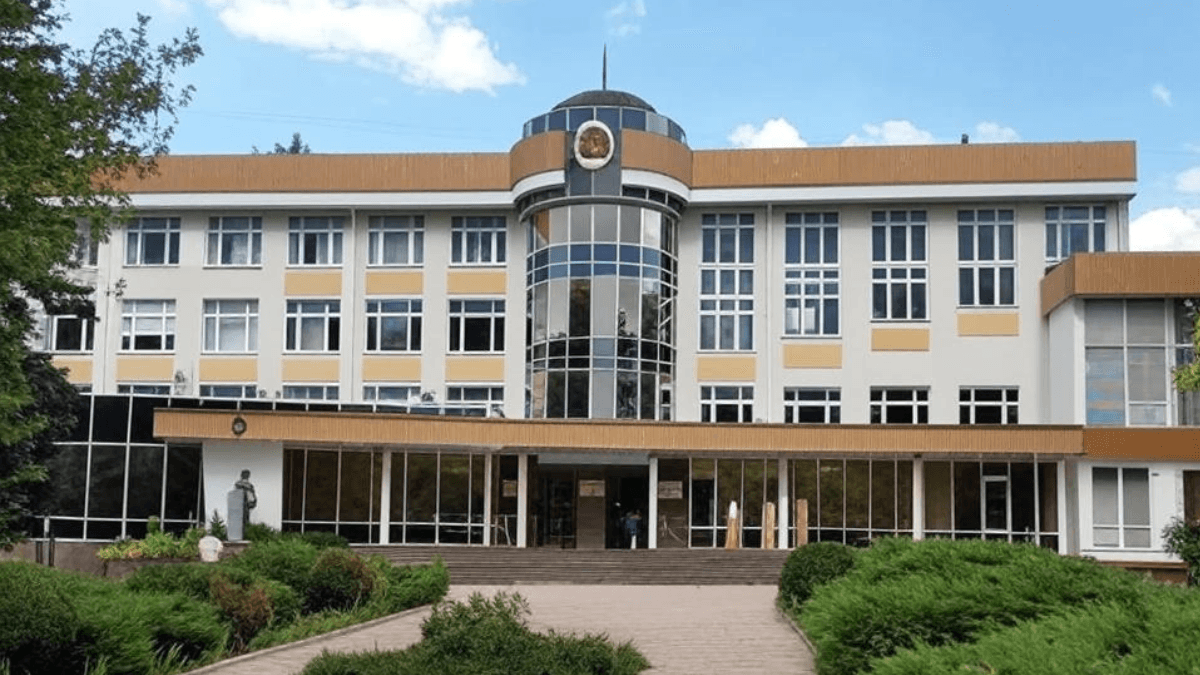
☝️ At a glance
- An RMO is a qualified doctor who assists senior medical staff, manages patient care, and handles emergencies in hospitals.
- Complete an MBBS degree, a 1-year internship, and register with the Medical Council of India (MCI).
- RMOs need clinical knowledge, critical thinking, communication skills, and time management.
- RMOs earn ₹40,000–₹1,20,000 per month based on experience.
- RMOs gain hands-on experience, with opportunities to specialize or advance to senior roles.
If you're considering a career as a Resident Medical Officer (RMO), understanding the required qualifications, skills, and career path is essential. This guide covers everything you need to know about how to become a RMO doctor, including the educational journey, responsibilities, and career opportunities.

Become a global doctor with MBBS abroad!
Studying abroad can be affordable and stress-free with futureMBBS:
- World-recognized universities with English-taught programs
- On-site support in partner university cities
- Guaranteed placements & internships for hands-on experience
From selecting universities and supporting you with the application process to orientation and finding accommodation – we are at your side.
Who is a RMO doctor?
A Resident Medical Officer (RMO) is a medical professional who works in hospitals, assisting senior doctors, consultants, and specialists in managing patient care. RMOs play a vital role in treating patients, responding to emergencies, and ensuring effective medical care during their shifts.
RMOs often handle critical tasks such as:
Providing treatment to patients
Performing ward rounds
Responding to cardiac arrest emergencies
Assisting in surgery and other procedures
Managing long shifts to ensure 24/7 patient care
Why choose a career as a RMO doctor?
A career as an RMO doctor offers numerous benefits:
Benefit | Details |
|---|---|
Hands-on Experience | RMOs gain practical knowledge by working directly with patients in real-life scenarios. |
Diverse Opportunities | RMOs can work in private hospitals, government hospitals, or specialized healthcare centers. |
Path to Specialization | RMO roles provide exposure to multiple specialties like pediatrics, surgery, and medicine. |
Stable Career Growth | RMOs often transition to senior roles such as consultants or specialists. |
Steps to become a RMO doctor
Step 1: Complete a medical degree
To start your journey, you must obtain a recognized medical degree such as MBBS or Bachelor of Medicine and Surgery.
Medical degree options | Duration |
|---|---|
MBBS (Bachelor of Medicine, Bachelor of Surgery) | 5.5 years (including a 1-year internship) |
BDS (Bachelor of Dental Surgery) | 5 years |
BAMS (Bachelor of Ayurvedic Medicine and Surgery) | 5.5 years |
BHMS (Bachelor of Homeopathic Medicine and Surgery) | 5.5 years |
Step 2: Complete a compulsory internship
After earning a medical degree, you must complete a 1-year internship in a recognized hospital. During this period, aspiring RMOs learn to:
Prepare patients for examinations
Administer medications under supervision
Assist in ward rounds and emergency care
Gain experience in multiple specialties like pediatrics, medicine, and surgical procedures

Study medicine abroad with 100% support!
futureMBBS offers full support to make your dream of studying medicine abroad a reality.
- Hassle-free admission guidance
- Fast-tracked visa processing
- Post-arrival support, including accommodation assistance
Step 3: Register with the medical council
To legally practice medicine in India, you must register with the Medical Council of India (MCI) or your respective State Medical Council. Registration involves submitting:
Degree certificates
Internship completion proof
Identity and address proof
Payment of registration fees
Step 4: Gain practical experience
After registration, aspiring RMOs should apply for junior doctor roles or RMO positions in government hospitals or private hospitals. This step helps build expertise in:
Diagnosing diseases
Providing treatments for common ailments
Responding to emergencies
Assisting senior doctors and consultants in complex cases
Step 5: Develop critical skills
Success as an RMO requires key skills such as:
Skill | Importance |
|---|---|
Clinical Knowledge | For accurate diagnosis, medication administration, and providing treatment. |
Critical Thinking | To handle emergencies like cardiac arrest or sudden health deterioration. |
Communication Skills | For effective interaction with patients, nurses, and healthcare teams. |
Time Management | To manage long shifts, patient care, and administrative tasks. |
Step 6: Apply for RMO positions
Once qualified, candidates can apply for RMO positions at various healthcare institutions. Popular choices include:
Private hospitals
Government hospitals
Emergency care centers
Specialized units like cardiology, orthopedics, or surgery
NEET requirement to pursue MBBS/BDS/BAMS/BHMS in India
To pursue an MBBS degree in India, qualifying for the NEET (National Eligibility cum Entrance Test) is mandatory. NEET is a national-level entrance exam conducted by the National Testing Agency (NTA) for admission to MBBS, BDS, and other medical courses in India.
Key NEET requirements:
Eligibility: Candidates must have completed Class 12 with Physics, Chemistry, Biology/Biotechnology, and English as core subjects.
Minimum marks: General category candidates must score at least 50%, while SC/ST/OBC candidates require 40%.
Age limit: The minimum age to appear for NEET is 17 years.
How NEETsheet can help you succeed
NEETSheet is an invaluable resource for NEET aspirants, providing:
Comprehensive study materials: Covers all subjects with easy-to-understand explanations.
Practice tests & mock exams: Realistic practice papers to enhance exam readiness.
Expert tips & strategies: Proven techniques to improve speed, accuracy, and score.
With NEETsheet, you can confidently prepare for NEET and take a crucial step toward achieving your dream of becoming a doctor with India’s best EdTech teachers.
Roles and responsibilities of a RMO doctor

RMOs play a crucial role in ensuring smooth hospital operations and optimal patient care. Their key responsibilities include:
Conducting ward rounds with consultants
Assisting in surgical procedures
Monitoring patients' symptoms and updating records
Responding to medical emergencies such as cardiac arrest
Providing medications and ensuring timely administration
Preparing patients for examinations and diagnostic tests
Work environment for RMO doctors
RMOs typically work in fast-paced hospital settings, handling multiple responsibilities under pressure. Key work environments include:
Type of Hospital | Responsibilities |
|---|---|
Private hospitals | RMOs provide dedicated support to senior doctors, ensuring efficient patient care. |
Government hospitals | RMOs manage large patient volumes, often in high-pressure settings. |
Specialized centers | RMOs focus on treating specific conditions such as pediatrics, cardiology, or surgical care. |
RMO doctor salary in India
The salary for RMO doctors varies based on experience, hospital type, and location.
Experience Level | Average Salary (per month) |
|---|---|
Entry-level (0-2 years) | ₹40,000 - ₹60,000 |
Mid-level (3-5 years) | ₹60,000 - ₹80,000 |
Senior-level (5+ years) | ₹80,000 - ₹1,20,000 |
Challenges faced by RMO doctors
While rewarding, an RMO career comes with several challenges:
Challenge | Details |
|---|---|
Long shifts | RMOs often manage 12-18 hour shifts in busy hospitals. |
Emotional strain | Handling critical patients and emergencies can be stressful. |
High responsibility | RMOs must ensure patient safety, accurate diagnoses, and proper medication. |
Conclusion
Becoming an RMO doctor is a rewarding career path that offers diverse learning opportunities, financial stability, and professional growth. By completing your medical degree, gaining practical experience, and applying for RMO positions, you can build a successful career in healthcare.
For expert guidance on pursuing your medical career or securing your MBBS degree abroad, contact futureMBBS today for personalized support and resources.
Your medical career abroad starts here!
Thinking of pursuing MBBS abroad? Don’t just dream it, do it!
Start your MBBS journey!Read more similar articles:
FREQUENTLY ASKED QUESTIONS
FAQs about “how to become a resident medical officer"
What is the salary of an RMO in India?
The salary of a Resident Medical Officer (RMO) in India varies based on experience, location, and the type of hospital. On average:
Entry-level (0-2 years): ₹40,000 – ₹60,000 per month
Mid-level (3-5 years): ₹60,000 – ₹80,000 per month
Senior-level (5+ years): ₹80,000 – ₹1,20,000 per month
Private hospitals may offer higher pay, while government hospitals may provide additional benefits like job security and allowances.
Are RMOs doctors?
Yes, RMOs are qualified doctors who have completed their MBBS degree and internship. They work under senior doctors, consultants, or specialists to provide patient care, respond to emergencies, and manage clinical duties in hospitals.
Is an RMO equal to a civil surgeon?
No, an RMO is not equivalent to a civil surgeon. While both are qualified medical professionals, their roles differ:
RMO: Typically works within a hospital setting, providing immediate care to patients under supervision.
Civil Surgeon: A senior medical officer appointed by the government to oversee public healthcare services, manage hospital administration, and handle public health programs.
Which doctor earns ₹2 lakh per month?
Doctors specializing in high-demand fields or those with extensive experience often earn ₹2 lakh or more per month. Common specializations with high earning potential include:
Cardiologists
Neurologists
Orthopedic Surgeons
Oncologists
Plastic Surgeons
Experienced General Physicians with a strong patient base
Private practice, corporate hospitals, and international certifications can further boost earning potential.




